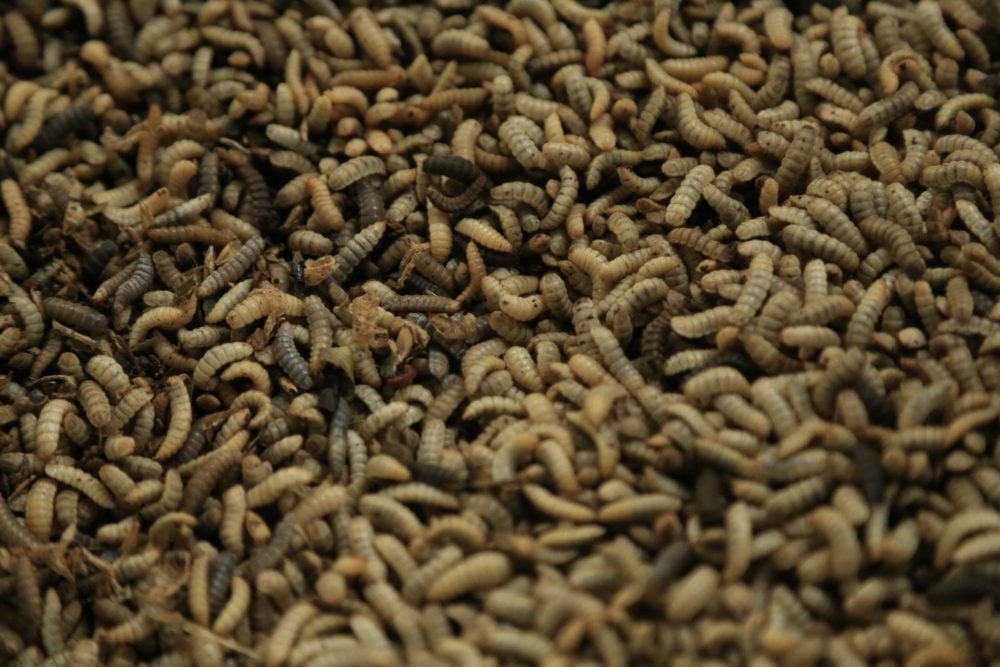NextProtein, a French-Tunisian startup working on new ways to produce insect-based animal feed and fertilizer, has raised €10.2 million ($11.2 million) in Series A funding, the company disclosed to AFN this week. According to AgFunder data, this is the largest early-stage agrifoodtech deal in Tunisia yet.
Leading the round were a group of investors drawn together by Blue Oceans Partners, including Telos Impact and RAISE Impact. Further support came from Mirova and Althelia Sustainable Ocean Fund, along with Japan’s Kepple Africa Ventures and Aucfan Incubate Inc (since its founding in 2015, nextProtein has also secured funds from investors including Kima Ventures and angels Khaled Helioui and Cyril Grislain.)
Using EU-approved organic waste to raise black soldier fly larvae for animal feedstocks, nextProtein will first target the aquaculture industry.
The choice of black soldier fly is far from unorthodox for insect startups. Others, like Better Origin (previously known as Entomics) or Enterra, have similarly identified the species for its growth rate. Its plus points include its voracious and omnivorous appetite when it comes to gobbling up food waste, creating valuable and fertile byproducts; its nutritional qualities when fed to fish or fowl; and the fact that, unlike locusts and some other species, there is no invasive disaster if black soldier flies manage to break out of the farm.
Other fashionable choices for startups include mealworms, bees, crickets, or grasshoppers. Out of those, the mealworm successfully wriggled into the forefront last year when Ynsect’s robotized mealworm farming tech broke records with its 125 million Series C round. It was the largest farmtech deal outside the US at the time, and should keep Ynsect buzzing for a while – so long as the next pandemic does not mutate from a mealworm wet market.
“Insect protein provides solutions to major societal problems: a growing population with a higher demand for fish and meat, and a degrading environment,” said nextProtein chief operating officer Syrine Chaalala – a former UN Food & Agriculture Organization emergency officer who co-founded the company with Mohamed Gastli, a chemical engineer and entrepreneur.
In a video call with AFN, Gastli described some of the technical challenges his team had encountered while designing the farm and looking for ways to ramp up production. There’s still a “long learning curve” toward full automation, he said, but there are already viable options such as conveyor belts, sensors, feeders, and logistics.
“For now, for us, everything is integrated,” he said, offering his firm’s answer to the debate over whether these farming systems should be centralized, distributed, or partly subcontracted. He noted how one of the main challenges all insect startups face is custom-making much of their equipment from scratch.
The team say its first facility, in Tunisia’s Cap Bon region, uses significantly less land and energy compared to traditional protein sources like beef and soy. The production method also requires less water and has a lower overall carbon footprint, they claim. Added to this, labor costs in Tunisia are significantly lower than they are in France – a key competitive advantage if full automation is not possible in the near-term.
On the regulatory front, nextProtein has its products certified through the EU’s Trade Control & Expert System, which is considered to have some of the strictest standards in the world for overseeing the import of animal products.
Headquartered in Paris, the startup eyes its place as part of a more circular economy, moving away from the traditional practice of using cereal byproducts as a main feed source for the insects to focus instead on fruits and vegetables that would otherwise be wasted.
So far, nextProtein’s products include protein powder for farmed fish, poultry, pigs, and household pets. According to the founders, one kilogram of insect protein could save three kilograms of ocean fish from being caught for use as fishmeal.
The latest investment will go to building a second production facility, making new hires, and accelerating R&D. The company plans to scale production to 100,000 tonnes per year by 2025, or an estimated 10% of the total insect protein market globally.
NextProtein’s new investors will be overseeing the second facility’s construction in the months ahead, and they seem to be brimming with optimism: the company, according to Christian Lim of Blue Ocean Partners, “has developed the most scalable insect farm model to date.”
How do you feel about the future of insect farming? Let us know by dropping a note to [email protected]





